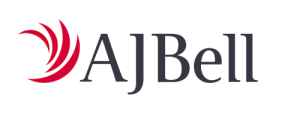September was marked by a significant increase in market volatility, with investors growing increasingly concerned that further rate hikes would be necessary to combat inflation, even if economic growth was to slow. Equities closed the month weaker, with the S&P 500 Index falling 12% in the latter half of the month after a higher-than-expected US consumer price index report and growing expectations of a recession in the US.
Elsewhere, increasing downside risks to China’s 2022 growth forecast and persistent COVID-19 control measures led to a further contraction in property investment amid rising defaults in the sector and cooling global demand for commodities. This resulted in poor emerging market equity performance over the month. Despite broad-based declines in commodity prices, in Europe, governments moved to cap energy prices paid by consumers. The European Central Bank proceeded with a 75 basis point (bps) hike in September, with a further 75bps hike expected in October as eurozone inflation rose to fresh highs of 10%. In the UK, the new Chancellor announced plans for significant tax cuts. Concerns that such commitments were being made on an unfunded basis pushed market interest rates higher and drove sterling to all-time lows against the US dollar, with the currency hitting a level of $1.035 in intraday trading. Fears around financial stability prompted the Bank of England to postpone the start of quantitative tightening, pushing real yields lower and raising sterling’s risk premium further.
Equity market returns over September were poor. Japan was one of the stronger performing regions in local currency terms, outperforming the broader All World benchmark, although absolute performance was still negative. In contrast, the US lagged in relative terms. Relative returns across strategies were mixed over September; however, in general they were negative, in absolute terms. There was relative outperformance from our Global Income strategy and Pyrford, while our European strategy lagged on a relative and absolute basis. Our overweight position in Dollar General, which operates a chain of discount retail stores, was a top performer for the Trust this month, with management signalling stronger-than-expected retention of higher-income customers from the pandemic. An overweight to United Health Group, a leading US healthcare and insurance company, also benefited relative returns.
In contrast, our Wizz Air overweight detracted on widespread travel disruption over the summer, while International Flavors and Fragrances, which manufactures ingredients for a range of consumer products, also saw weak performance over the month. We ended the month at a discount of 2.1%, having averaged a discount of 8.0% over September. We saw a substantial increase in daily trading volumes as the Trust entered the FTSE 100 share index of leading UK companies.
We can expect markets to remain volatile in the short term, as inflationary pressures persist and the risk of recession rises. Nonetheless, F&C Investment Trust’s corporate structure makes us well placed to withstand further market volatility. We remain focused on the long-term opportunities for the benefit of our shareholders.









